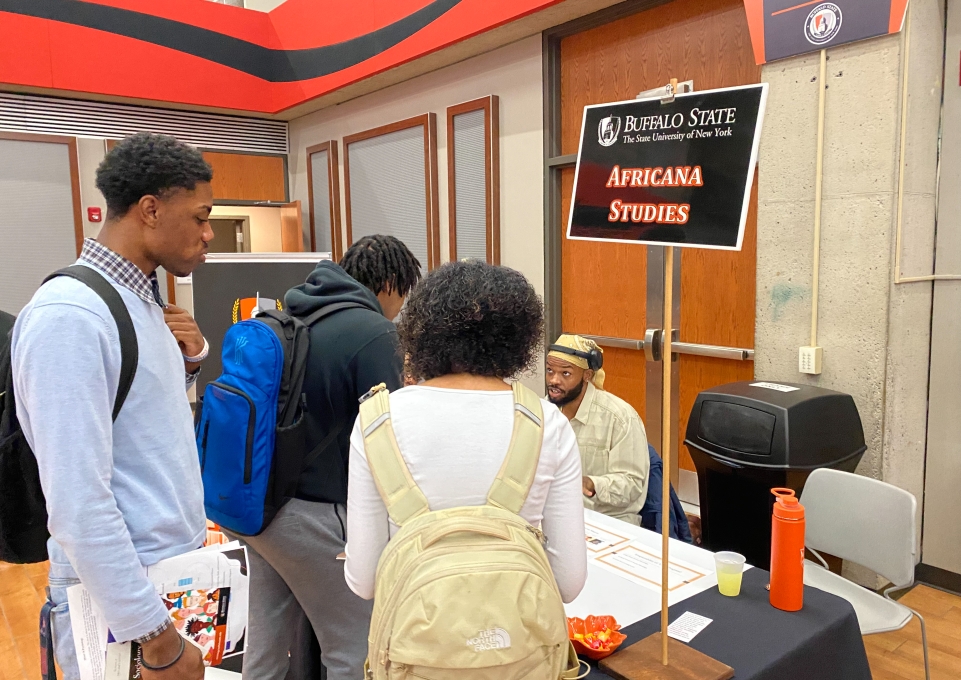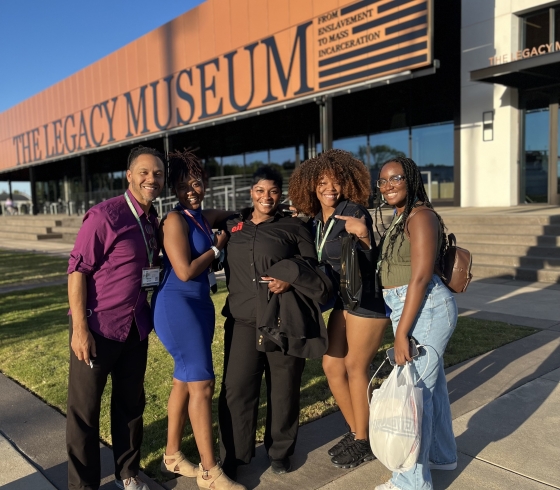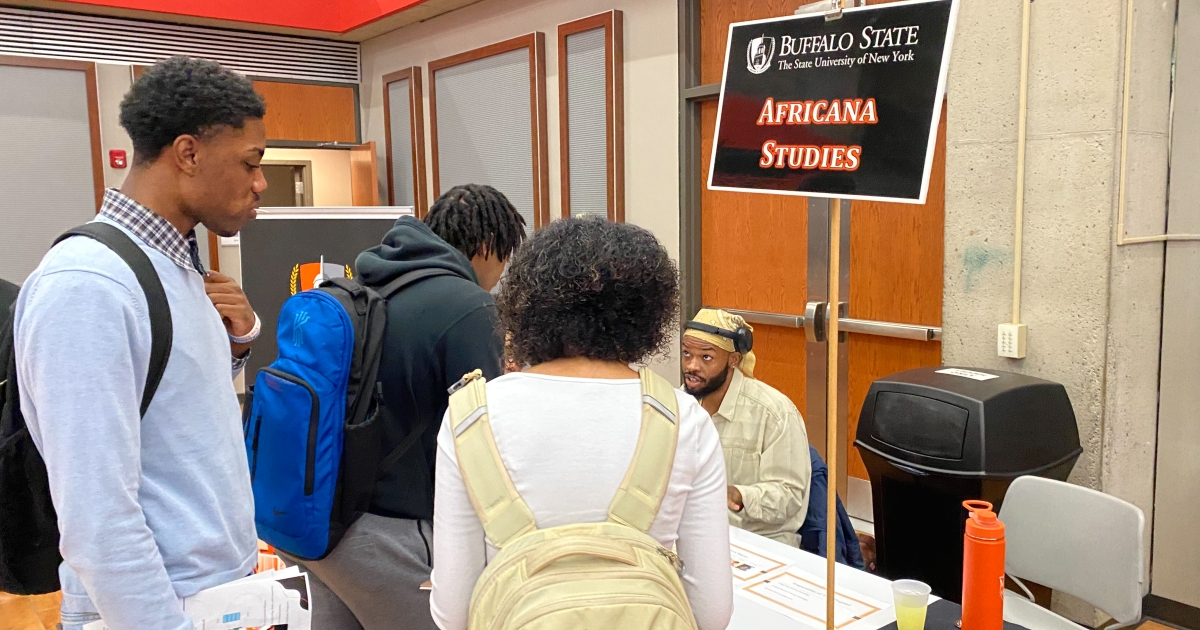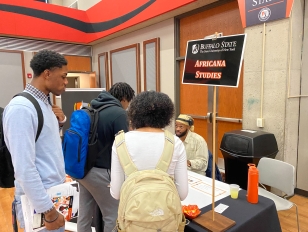
Today’s job market is competitive. It’s not enough to have a degree; applicants must possess strong communication skills, adaptability, critical thinking skills, and the ability to problem solve. Buffalo State University’s Africana studies program equips students with all these essential skills as well as compassion, empathy, and global perspective.
Africana studies is the multidisciplinary study of Black liberation from the diverse perspectives of African people globally for the purpose of creating a future of justice for all.
“The basic premise is that the ghost in the machine of America that haunts us is most fundamentally race—and related to the folks we call African Americans,” said Marcus Watson, associate professor and coordinator of the Africana studies program. “If we can understand and effectively address issues related to that, we can syllogistically resolve many other social justice issues.”
The challenge of illustrating the program’s inherent value to the public, Watson said, lies in a lack of familiarity and many misconceptions about content and audience. “No one has heard of Africana studies the way they’ve heard of biology and English,” said Watson, who earned his Ph.D. in cultural anthropology in 2010 and has since spent 14 years teaching and conducting research. The program is not strictly history, he said, but multidisciplinary. “We teach courses in philosophy, psychology, dance, literature, and more—all from an African-centered point of view. But Africana studies is no more ‘for Black folks’ than Eurocentric majors are ‘for White folks.’”
Africana studies has existed as a minor at Buffalo State since the 1980s (the recently deactivated Afro-American studies major was and always has been a separate program). In 2019, Buffalo State submitted a proposal to SUNY’s PRODiG initiative, that—once approved—enabled the university to develop Africana studies as a major program and hire four affiliated faculty members.

Marcus Watson and Africana studies majors with an employee of the Legacy Museum in Montgomery, Alabama.
Watson said that, as a discipline of healing, the major has found fertile ground in the world’s social and psychological tumult. Classes are taught by faculty members from multiple departments, including Criminal Justice; English; Fashion and Textile Technology; Political Science, Public Administration, and Planning; and Theater. To date, there are 15 Buffalo State Africana studies majors—plus 15 minors.
In addition to in-class relationships, Africana studies emphasizes community through monthly faculty mentoring sessions, a student lounge, a Big/Little peer-mentoring program, and—beginning in fall 2024—an incoming first-year learning community.
The program’s community-centric focus extends far beyond the walls of Buffalo State. Over the past four and a half years, Africana studies has cultivated strong connections with institutions such as M&T Bank, the Charter School of Inquiry, the Community Health Center of Buffalo, and Cerebro NeuroTech. The program uses these connections not only to link students with internships, jobs, and service opportunities but also to expand curriculum. For example, collaboration with Cerebro NeuroTech has led to the development of a new course, Blacks in Technology, which will be offered beginning with the 2024–2025 academic year.
The versatility that Africana studies provides is evident through alumni employment:
- Sophie Gallivan, ’24, Africana studies minor, is a DEI (Diversity, Equity & Inclusion) program manager at M&T Bank, a position she was offered after completing an internship through Buffalo State and Africana studies.
- Erica Green, ’21, Africana studies major, works in the community health and wellness sector of St. Peter's Hospital in Albany.
- Anna Kelly, ’22, double major in history and Africana studies, has held positions with a variety of organizations including Explore & More, the Ralph C. Wilson Jr. Children’s Museum; Erie 1 BOCES; and—currently—People Inc.
This, Watson said, is the goal.
“It's not just that you can find employment with an Africana studies degree; it’s also critically important that we bring the lessons from this degree to every employer possible.”
“Our hope is that our majors and minors will take their Africana perspectives and sensibilities to any and all industries and professions,” he said. “There isn’t a form of employment in America that hasn’t been touched by racial injustice; therefore, it’s not just that you can find employment with an Africana studies degree; it’s also critically important that we bring the lessons from this degree to every employer possible.”
Buffalo State has a long and continuing commitment to equity and inclusion and believes in the equitable and just treatment of all community members. The university seeks to educate students about the value of a diverse population and the importance of elevating equality as a united force to guide our world. And that’s what Africana studies does best.
“The mindset of this generation is, ‘What’s the point? What’s the point of life? What’s the point of trying to better society?’” Watson said. “Africana studies has the answer because, in Africana studies, the knowledge must have a use and a meaning. It must be deeply transformative and purposeful. It has to help fix the future.”
Header image by Jesse Steffan-Colucci, Buffalo State photographer.
Inline image courtesy of Marcus Watson.



